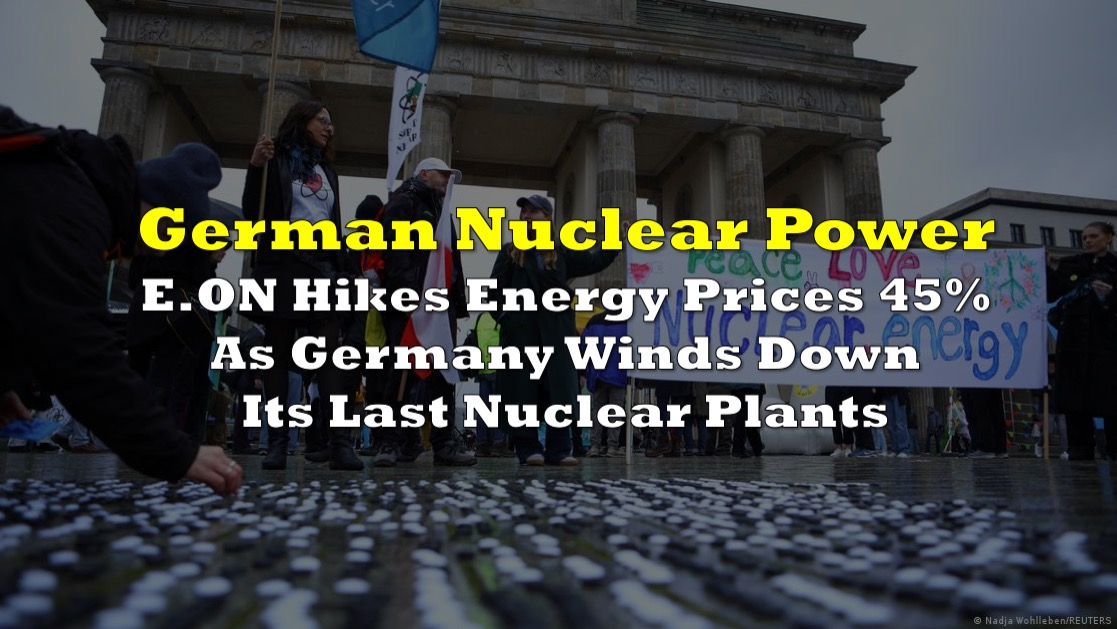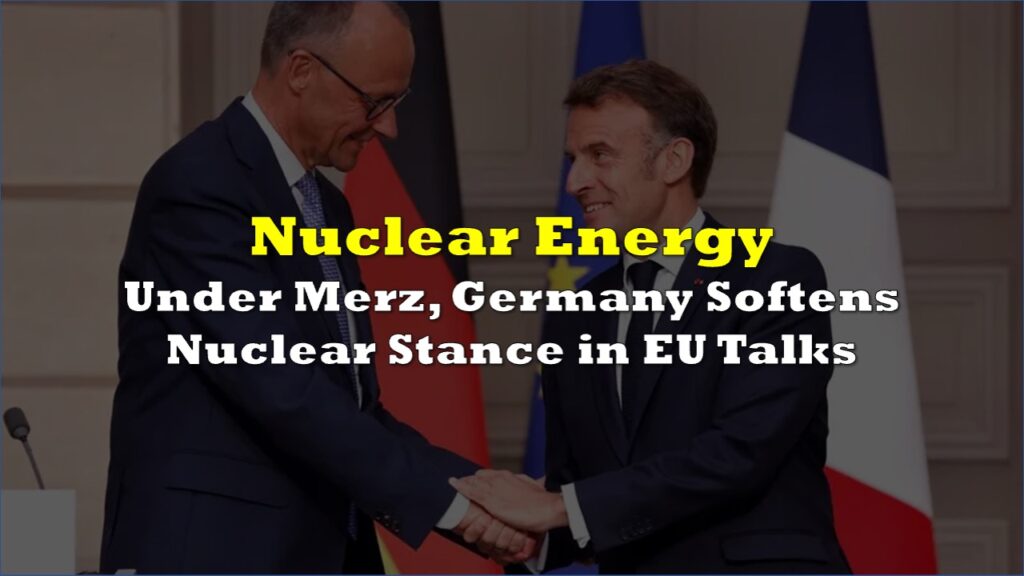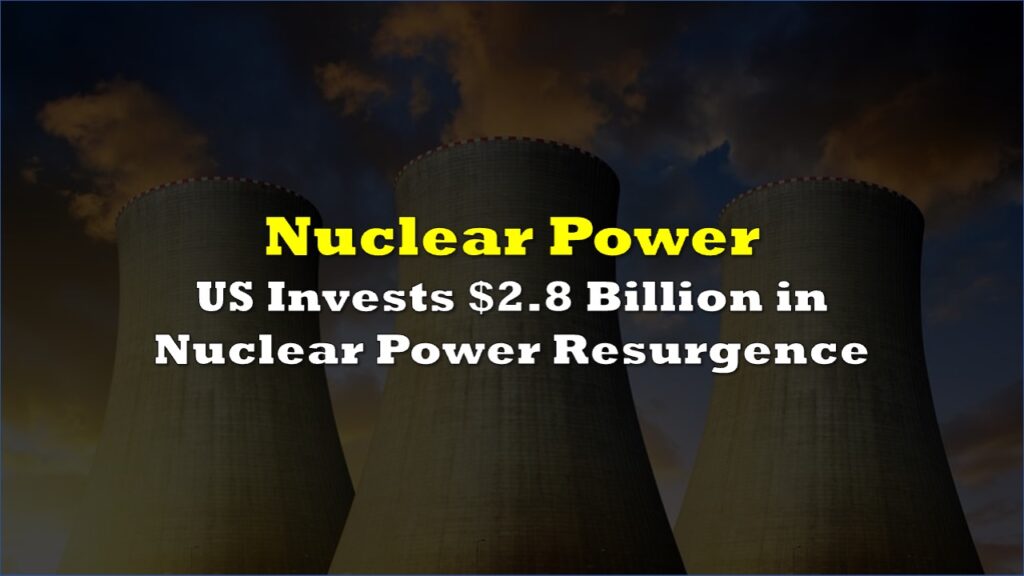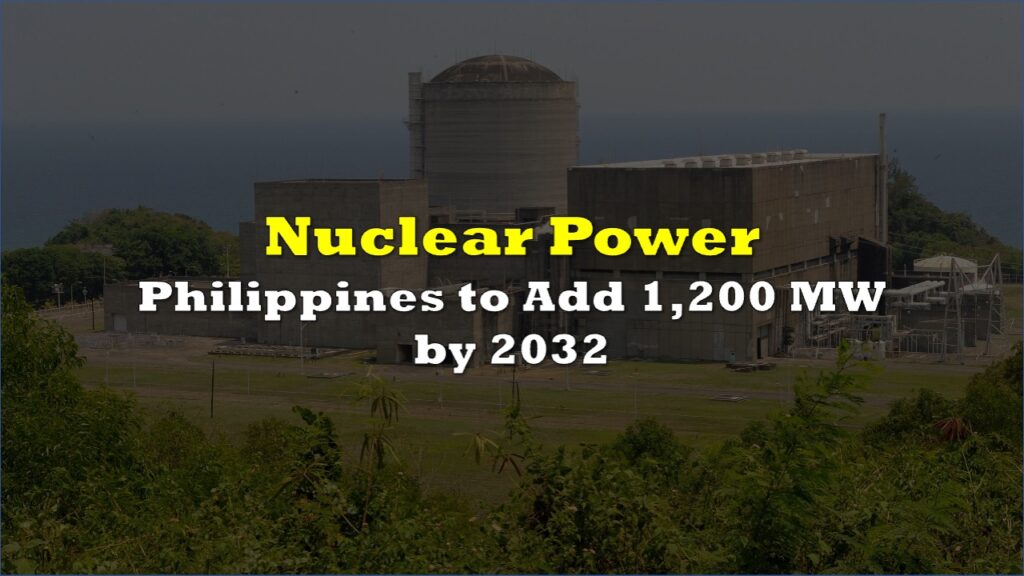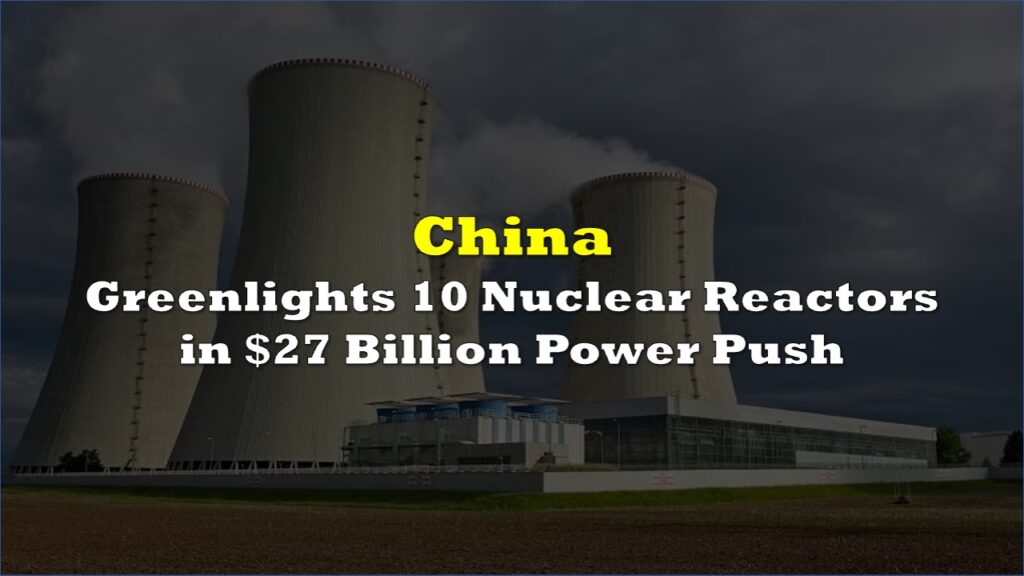Germany began shutting down its three remaining nuclear power reactors on Saturday as part of a long-planned shift to renewable energy. The international community was keeping a tight eye on the shutdown of the reactors Emsland, Neckarwestheim II, and Isar II, which was agreed to more than a decade ago.
Other developed countries, like the United States, Japan, China, France, and the United Kingdom, are relying on nuclear energy to replace planet-warming fossil fuels. Germany’s decision to discontinue use of both has been met with some skepticism, as have last-minute calls to halt the shutdown.
The country was caught in a bind as it tries to enact the 2011 resolution by former Chancellor Angela Merkel to make a nuclear exit by the end of 2022, but was starting to reconsider in the face of threats to the stability of the energy supply.
Europe’s largest electricity exporter made the decision to keep the last reactors open until mid-April after power operators conducted stress tests on the grid. The results showed that there could be times the electrical supply will be hitting crisis level given the tightness in the continent’s energy market.
Energy price hike
As energy prices rose last year as a result of the Ukraine conflict, certain members of German Chancellor Olaf Scholz’s government became hesitant to close the nuclear plants as planned on December 31, 2022. Scholz agreed to a one-time extension of the deadline but insisted on the final countdown taking place on April 15.
Alongside the closure of the nuclear plants, German multinational electric utility E.ON increased its prices by as much as 45% starting June 1.
HOURS BEFORE CLOSING REACTOR, GERMAN UTILITY ANNOUNCES 45% PRICE RISE
— Mark Nelson (@energybants) April 16, 2023
As Eon closed nuclear, by far its cheapest reliable power, it announced a big jump for many customers from what are already some of Europe's highest prices.
Helps buy carbon permits.https://t.co/kWv4X0urHw pic.twitter.com/9gDv45fpPx
“In parts of NRW [North Rhine-Westphalia], the new price is 49.44 cents gross per kilowatt hour, which means an adjustment of around 45 percent for an average consumption,” said a spokesman for Eon Energie in German.
Consumer advocates are concerned. This is particularly aggravating for citizens because energy costs on the stock exchange have been declining for some time. Furthermore, the federal government’s price controls can only minimize the price shock.
“The increases that Eon has announced are very drastic,” said Amelie Vogler, energy expert at the Consumer Centre NRW. “Basically, the electricity price brake naturally dampens the increase. But for 20 percent of consumption, consumers still have to pay the high new price.”
Eon is not an isolated case. According to the comparison portal Verivox, 98 electrical price increases have been announced or implemented by basic providers in NRW since the beginning of the year, with an average increase of 45 percent.
The electric company defended the increase, saying they cushioned the much more expensive purchasing costs for customers for an above-average period of time during the energy crisis but had to secure future amounts of energy for customers at high prices on the wholesale markets last year.
“Therefore, it is unavoidable that this is delayed, but the crisis is not over yet,” the spokesperson added.
Decades of anti-nuclear protests in Germany, fueled by disasters at Three Mile Island, Chernobyl, and Fukushima, put pressure on successive governments to phase out a technology that critics claim is dangerous and unsustainable.
“Mistaken decision”
Now that the country is closing down its nuclear plants, it’s reheating the debate with strong opinions from either side.
Bavaria’s conservative governor, Markus Soeder, who supported the original deadline set in 2011, termed the shutdown “an absolutely mistaken decision.”
“While many countries in the world are even expanding nuclear power, Germany is doing the opposite,” Soeder said. “We need every possible form of energy. Otherwise, we risk higher electricity prices and businesses moving away.”
Nuclear power supporters around the world have condemned the German shutdown, fearing that the decision by Europe’s largest economy will harm a technology they promote as a clean and stable alternative to fossil fuels.
Friedrich Merz, the leader of the Christian Democratic Union (CDU), asserted on Friday that the final three nuclear facilities “are the safest in the world.”
“No other country is reacting to the Ukraine war and the aggravated energy supply situation like Germany,” Merz told public broadcaster NDR.
In view of probable shortages and high costs, business leaders, notably Peter Adrian, head of the Association of German Chambers of Commerce and Industry (DIHK), urged the government to “expand the supply of energy and not restrict it any further.”
When it was announced that Germany will still push through with the nuclear exit, Swedish climate activist Greta Thunberg said it is irresponsible to shut down Germany’s still operational nuclear power stations and instead rely more on coal power.
Elon Musk also slammed the nuclear exit, saying the move is “total madness” and Germany should be reopening nuclear power plants instead of closing them.
MUSK SLAMS GERMANY NUCLEAR CLOSURES:
— Mark Nelson (@energybants) April 15, 2023
"I want to be super clear. In my opinion, Germany should not only not shut down the nuclear power plants, it should reopen the ones that are shut down,"
says @elonmusk to @welt.
"This is total madness. I want to be clear. Total madness." pic.twitter.com/fmPpNcxvoF
Many other countries, like the United States, China, France, and the United Kingdom, are banking on nuclear energy to replace planet-warming fossil fuels. Japan has reversed plans to phase out nuclear power.
Nuclear energy supporters believe that it creates significantly fewer greenhouse gas emissions and can help Germany accomplish its goal of becoming carbon neutral by 2045.
“By phasing out nuclear power, Germany is committing itself to coal and gas because there is not always enough wind blowing or sun shining,” said Rainer Klute, head of pro-nuclear non-profit association Nuklearia.
“Goodbye nuclear power!” Hello coal?
On the other hand, the parliamentary group of the center-left Social Democratic Party (SPD) of Scholz tweeted: “Goodbye nuclear power! Goodbye insecure, unclean, uneconomical energy policy!”
Ricarda Lang, the chairwoman of the climate-friendly Greens’ parliamentary group, stated that the end of nuclear power “marks a definitive entry into the age of renewable energies,” allowing current generations to “ultimately leave to our children with a clear conscience.”
The Greens said affordable renewable energies “would secure the energy supply, protect the climate, make Germany independent of autocrats and lay the foundation for a strong economy and good jobs.”
But, the business-focused Free Democratic Party (FDP), which is in alliance with the SPD and Greens, stated on Twitter that it is dissatisfied with the exit.
Christian Lindner, Germany’s finance minister, stated on Twitter that while renewable energy is the future, “in the meantime, we have to secure our supply until we have sufficient capacity.”
The German government has admitted that, in the short term, the country will have to rely more heavily on polluting coal and natural gas to meet its energy demands, even as it takes steps to dramatically increase solar and wind energy output. Germany intends to achieve carbon neutrality by 2045.
However, officials like Environment Minister Steffi Lemke argue that the idea of a nuclear renaissance is a myth, citing data showing that nuclear energy’s share of worldwide electricity production is decreasing.
Lemke stated at a recent news conference in Berlin that the construction of new nuclear facilities in Europe, such as Hinkley Point C in the United Kingdom, has been plagued by substantial delays and cost overruns. She claimed that funds spent on maintaining or building new reactors would be better spent on installing low-cost renewables.
Hard to believe that Germany is shutting down its last nuclear power plants and restarting coal plants — switching from one of the safest energy sources to the deadliest. pic.twitter.com/2zotQedOhN
— Alec Stapp (@AlecStapp) April 15, 2023
Economy Minister Robert Habeck asserted that energy supply would be secure even after the final nuclear reactor was decommissioned.
Meanwhile, according to a Forsa Institute poll released earlier this week, two-thirds of Germans favor extending the lifespan of nuclear reactors or reconnecting outdated facilities to the grid, with only 28% supporting the phase-out.
Information for this briefing was found via Rheinische Post, EuroNews, DW, and the sources mentioned. The author has no securities or affiliations related to this organization. Not a recommendation to buy or sell. Always do additional research and consult a professional before purchasing a security. The author holds no licenses.

